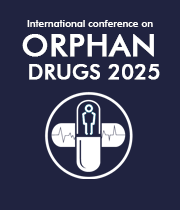Biomedical Research and Rare Diseases
Biomedical research is a broad field of study that aims to find new ways to prevent and treat diseases that cause illness and death in humans and animals. This broad field of study encompasses a wide range of biological and physical disciplines. Biomedical researchers examine biological processes and disorders using technological techniques in the hopes of generating viable therapies and cures. In the past, there has been a focus on rare diseases, including research investigations, finding information on rare diseases, and the requirements and limitations of conducting clinical trials with small patient groups. The research community continues to acknowledge the growing role of patient advocacy organizations and patient engagement in all stages of clinical research. In the future, a better understanding and interpretation of accessible data from a variety of sources, including electronic health records and big data sources, will be required. Because of advancements in clinical trial design and data analysis, the pipeline of potential orphan products continues to increase dramatically and holds considerable promise for innovative interventions. The diagnosis of rare diseases will be sped up by expanding diagnostic procedures and improving sequencing technologies.
- Biomedical Informatics
- Drug Discovery
- Clinical Trials
- Computational Technologies
- Clinical Decision Support

Sergey Suchkov
The Russian University of Medicine & Russian Academy of Natural Sciences, Russian Federation
Vladlen Slepak
University of Miami, United States
Harsha Rajasimha
Jeeva Clinical Trials, Inc, United States
Vladlen Slepak
University of Miami, United States
Harsha Rajasimha
Jeeva Clinical Trials, Inc, United States
Sergey Suchkov
The Russian University of Medicine & Russian Academy of Natural Sciences, Russian Federation


Title : Emerging solutions for inclusive orphan drug clinical trials management
Harsha Rajasimha, Jeeva Clinical Trials, Inc, United States
Title : Ectopically expressed olfactory receptors as an untapped family of drug targets. Discovery of agonists and antagonists of OR51E1, an understudied G protein-coupled receptor
Vladlen Slepak, University of Miami, United States
Title : Personalized and Precision Medicine (PPM) as a unique healthcare model to secure the human healthcare and biosafety among childhood
Sergey Suchkov, The Russian University of Medicine & Russian Academy of Natural Sciences, Russian Federation
Title : Orphan and rare disease emerging as a global public health priority through the view of personalized and precision medicine: How to use the latter to revolutionize pediatric services
Sergey Suchkov, The Russian University of Medicine & Russian Academy of Natural Sciences, Russian Federation
Title : Personalized and Precision Medicine (PPM) though the view of reproductive healthcare, pediatric services and natural family planning: an option for clinicians and caregivers realize the potential of genomics-informed care to secure the individualized human biosafety
Sergey Suchkov, The Russian University of Medicine & Russian Academy of Natural Sciences, Russian Federation
Title : Democratizing ASO drug discovery at La Jolla Labs
Melissa Keenan, La Jolla Labs, United States